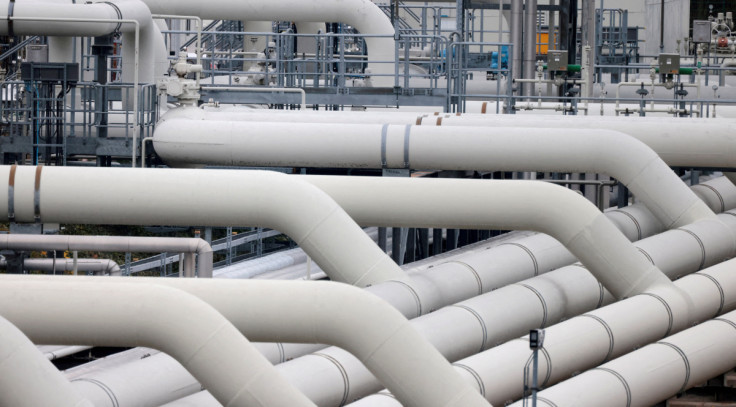Explainer-What Are The Snags In Germany's Gas Levy On Consumers?

Germany's gas market operator is set to announce on Aug. 15 the size of a gas price levy on consumers, to help Uniper and other importers cope with soaring prices due to reduced Russian supply.
Germany's cabinet on Aug. 4 agreed to impose the levy from October 2022 to April 2024.
It aims to share 90% of importers' additional costs of replacing a shortage of gas from Russia among both households and industrial consumers.
But there are several hurdles to raising the fees that must be overcome ahead of the winter heating season startings in October.
Utilities - wedged between importers and squeezed end consumers - fear being stuck with back-breaking costs.
Here are the pitfalls that government and legal sources say lawmakers must address:
COSTS PILE UP FOR CONSUMERS
The government so far expects a levy of between 1.5-5.0 euro cents per kilowatt hour (kWh) on consumers to pay for 90% of the higher cost of wholesale gas, plus an as yet unspecified levy for gas storage, due to be published on Aug. 18.
The first levy already would cost a four-person household consuming 20,000 kWh up to 1,000 euros ($1,030) extra, before value-added tax and time-lagged price hikes that would have to come necessarily after wholesale prices exploded.
Even before the new measures, annual household gas bills are three times higher than a year ago, prices portal Verivox has calculated.
Suggestions by ruling coalition and opposition policymakers to help low-income households include tax refunds and a possible relaxation of insolvency laws, as seen during the COVID-19 pandemic.
TIME PRESSURE
The government opted for a general levy because companies would likely be sued by customers if they used price adjustment mechanisms.
Customers must by law be notified of the levy six weeks in advance of the proposed Oct. 1 start date, meaning THE is under a deadline if utilities want to write to consumers by Aug. 19.
Implementing the planned two-pronged levy makes the time frame even tighter.
Given the levy will only be set for three months at a time, reviewing it will require regular and time-consuming administration.
FIXED PRICES
Around one quarter of gas consumer contracts are based on fixed prices, typically for one calendar year. It is not clear if it is possible to charge the levy for the remainder of 2022 in these cases.
The two houses of parliament would have to approve such a move after their summer break ends in September, meaning delays.
By law the levy on fixed-price contracts cannot be imposed for six weeks after it is approved, taking its arrival into at least October, if not November.
In addition, in the heat sector, consumer groups argue it is unfair that consumers forced to rely on gas-generated heat should be hit by charges while those getting heat from coal or waste power plants won't.
These issues matter because if some consumers were not obliged to pay extra, the burden on the rest would be higher, contradicting the intended effect of sharing out the additional burden of high gas prices.
LEGAL DEMANDS
Utility companies' management and supervisory boards must approve the collection of levies even if it is mandated by the state, which is also time-consuming.
($1 = 0.9709 euros)
Copyright Thomson Reuters. All rights reserved.





















